Another Rwandan Human Rights Organisation Bites the Dust – By Anonymous
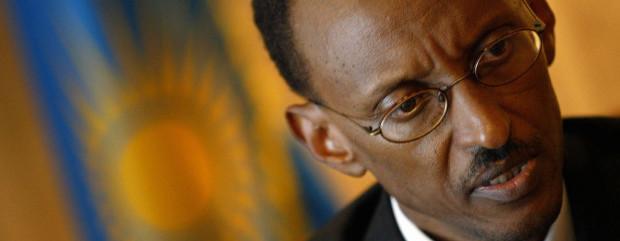
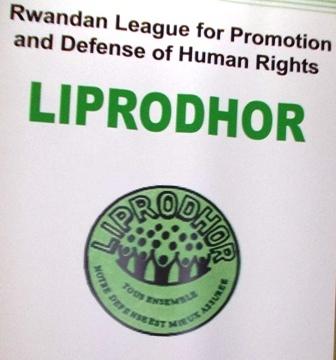 Concurrent with a general preoccupation to restrict and restrain freedom of speech within Rwanda, the Government has successfully brought another human rights organisation within the country to its knees. Throughout 2013, the Rwandan League for the Promotion and Defense of Human Rights (known as LIPRODHOR) has been progressively enveloped within the government’s sphere of control to the extent that its capacity for any form of meaningful and autonomous critical expression is almost non-existent.
Concurrent with a general preoccupation to restrict and restrain freedom of speech within Rwanda, the Government has successfully brought another human rights organisation within the country to its knees. Throughout 2013, the Rwandan League for the Promotion and Defense of Human Rights (known as LIPRODHOR) has been progressively enveloped within the government’s sphere of control to the extent that its capacity for any form of meaningful and autonomous critical expression is almost non-existent.
As various human rights organisations have described, much of this can be attributed to a change in the Board of Directors which occurred in July 2013. Despite the organisation’s constitution making clear that the Board be elected at the General Assembly, which is usually held in December, with a quorum consisting of two-thirds of the organisation’s members, a meeting was held in July which dismissed the previous board and elected a definitively pro-RPF contingent in their place. Many of those working for LIPRODHOR were not invited, and it is alleged that fewer than half the number required for quorum were in attendance. Nonetheless, and perhaps unsurprisingly, the regulatory body within the Rwandan Governance Board approved the election process as entirely legitimate.
Although the previous board is challenging this decision within the courts, there is little expectation that this will be decided in an expedient or favourable fashion. For one, the case is unusual; officially, it involves only members of LIPRODHOR, and on paper there were no procedural irregularities. Even a cursory glance, however, raises some crucially unaccounted for aspects. The meeting in July, for example, required the mobilisation, transportation and accommodation of almost fifty members of the organisation at no small expense. As there is no record of any LIPRODHOR funds being used for this process, as would be the case for their regular Annual General Meetings, this undoubtedly suggests that another organ was involved in the process. The court’s dismissal of that aspect will likely be another classic case of juridical spin-doctoring.
In the meantime, this controversy has impacted upon donors’ willingness to fund the organisation’s activities, resulting in the cancellation of several contracts. With the contract for the Universal Periodic Review having been lost, constituting a major withdrawal of funds, this leaves the organisation’s staff in a dilemma: work without being paid, or leave. The latter comes with the certainty that once the remaining critical voices within the organisation have left, the transformation to wolf in sheep’s closing will continue unimpeded. New sources of funding will spontaneously appear which allow LIPRODHOR’s work to continue, but the focus will shift away from direct indictments of the Rwandan government’s human rights record to tokenistic defenses of prisoner, disabled and access to property rights. In essence, human rights abuses will become blamed on the inadequacies of the system rather than the intentional, systematised will of the government.
And that is what is most concerning about this current case. Whereas in the past LIPRODHOR has had assets frozen and the organisation’s doors temporarily closed, it has been able to mobilise internal resistance against the government’s infringement. International human rights organisations have been able to challenge these tangible actions, and LIPRODHOR has eventually managed to regroup and continue its work. Now the organisation is increasingly “˜rotten at the core’, however, it suggests that the current strategy of government takeover is near-on irreversible.
So as not to end on too depressing an analysis, one member of the organisation made the following clear. Though they see bilateral government pressure to improve human rights within the country as ineffective and even dangerous, causing retribution to those sources the Rwandan government considers to have contributed towards it, the watchful eye of international civil society provides some source of ongoing reassurance. It communicates a clear message that the government cannot act with total impunity, which is reassuring to individual and organisation alike. This is not to say that it is stopping many of the vast numbers of infringements being experienced, but rather that it is keeping open that small window of opportunity and possibility which ensures that those violations can at least continue to be challenged.
Comments will be moderated before approval.


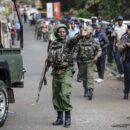
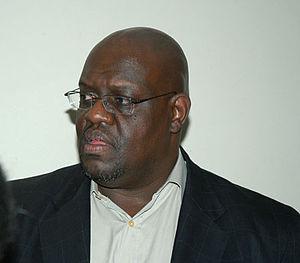
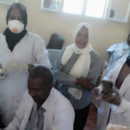


This comment will focus mostly on what I refer to as “massively institutionalized international human rights law.†By this I mean the particular form of practicing human rights that espouses both a highly legal and highly institutional international form. It should be evident that this is only one of the ways in which one might think about the potential of human rights, but also that it is a particularly influential one in this current age. As a prime example of this massive institutionalization, I will be particularly interested in the fate and role of the European Convention (ECHR) and Court (ECtHR) of Human Rights, the one that is most frequently heralded as the model towards others should converge, that has been emulated by other regional systems and may yet provide the blueprint for a universal human rights system (in the form, for example, of the increasingly discussed project for an international human rights court). What the focus on the ECtHR foregrounds is the important of adjudication in processes of international human rights law development. In that respect, although my thinking has been heavily influenced by “International Human Rights Movement: Part of the Problem?” David Kennedy’s striking critique, I am less interested in the “human rights movement†than with international human rights institutions as part of the super-structure of international law.